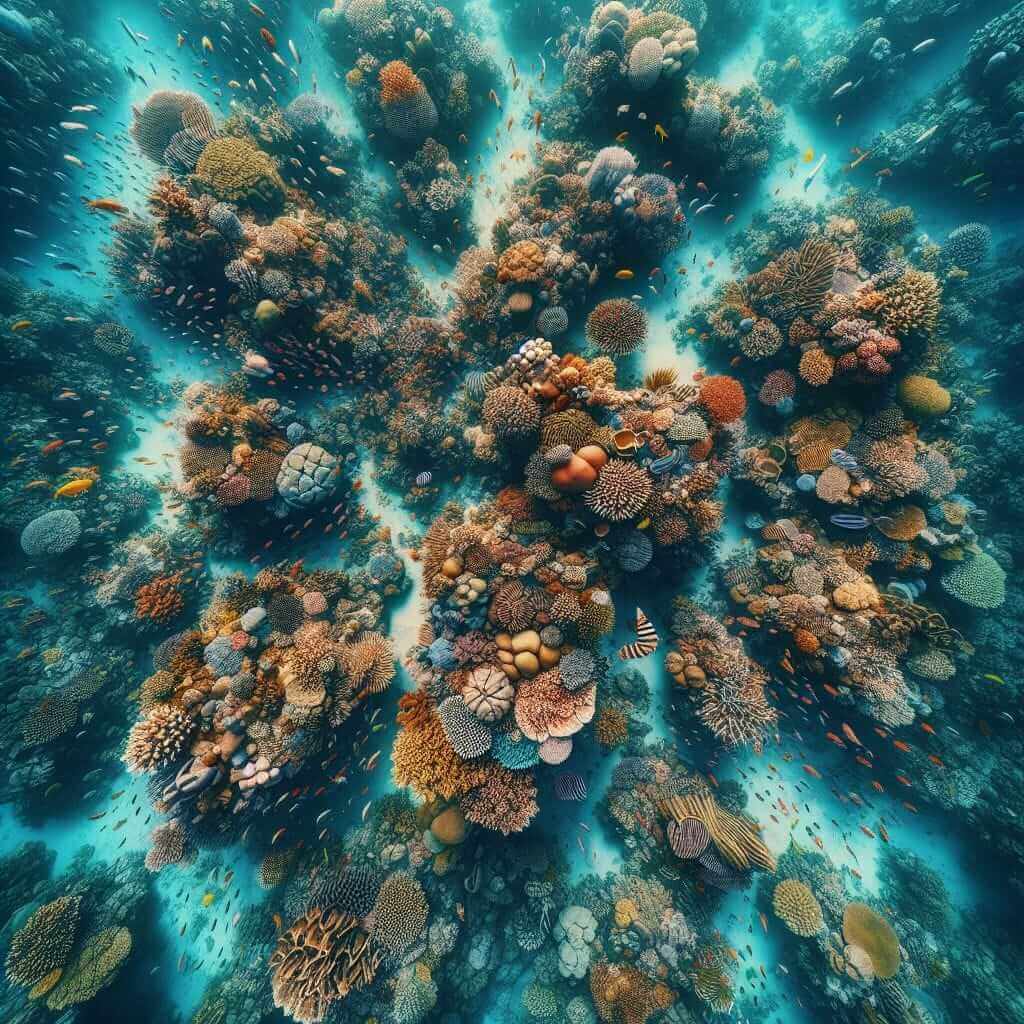The IELTS Reading section tests your ability to understand and analyze texts on a range of topics. One increasingly relevant and popular subject is “Challenges in Protecting Marine Biodiversity.” Given the global focus on environmental concerns, it’s likely that similar topics will appear in future IELTS exams. In this article, we’ll explore this topic through a practice reading exercise and provide comprehensive notes on grammar, vocabulary, and common pitfalls to help you ace your IELTS Reading test.
Practice Reading Test
Passage: Challenges in Protecting Marine Biodiversity
Marine biodiversity faces numerous challenges, encompassing everything from pollution to overfishing, climate change, and habitat destruction. These problems not only threaten the marine life but also the livelihoods of millions of people who depend on the ocean’s resources.
Pollution, primarily from plastic waste, oil spills, and agricultural runoff, remains one of the most pressing issues. Marine creatures often mistake plastic for food, leading to fatal consequences. Oil spills, on the other hand, create long-lasting damage to marine habitats and organisms.
Overfishing is another significant threat to marine biodiversity. Unsustainable fishing practices have led to the decline of various fish populations, disrupting marine food webs. Countries have attempted to implement fishing quotas and protected marine areas, but enforcement remains weak.
Climate change exacerbates many of these issues. Warmer oceans result in coral bleaching, affecting the reefs that house a quarter of all marine species. Additionally, ocean acidification, caused by increased CO2 absorption, impairs the ability of marine organisms like shellfish and corals to build their shells and skeletons.
Habitat destruction, driven by coastal development, mining, and deforestation, further compounds the problem. Mangroves, seagrasses, and coral reefs, which serve as vital breeding grounds and nurseries for marine life, are increasingly being lost.
Efforts to protect marine biodiversity are being made through international agreements, national policies, and community-based initiatives. However, achieving global compliance and cooperation remains a daunting task. For instance, the Convention on Biological Diversity sets ambitious targets, but few countries meet their obligations.
Questions
Multiple Choice
-
According to the passage, what is one of the primary sources of marine pollution?
- A. Overfishing
- B. Climate change
- C. Plastic waste
- D. Habitat destruction
-
What impact does overfishing have on marine ecosystems?
- A. It leads to coral bleaching.
- B. It causes ocean acidification.
- C. It disrupts marine food webs.
- D. It results in the destruction of mangroves.
True/False/Not Given
- Oil spills do not have long-lasting effects on marine habitats. (True/False/Not Given)
- All countries fully comply with the Convention on Biological Diversity. (True/False/Not Given)
Matching Headings
Match the following headings to the appropriate paragraphs:
- i. Pollution Problems
- ii. International Efforts
- iii. The Role of Climate Change
- iv. Overfishing Consequences
- Paragraph 2:
- Paragraph 6:
Sentence Completion
Complete the sentences below.
7. Warmer oceans result in __, affecting reefs that house many marine species.
8. Ocean acidification impairs the ability of marine organisms like to build their shells.
Answer Keys:
-
C. Plastic waste – Pollution, primarily from plastic waste…
-
C. It disrupts marine food webs – Unsustainable fishing practices have led to the decline of various fish populations, disrupting marine food webs.
-
False – Oil spills, on the other hand, create long-lasting damage to marine habitats and organisms.
-
False – Few countries meet their obligations.
-
i. Pollution Problems – Pollution, primarily from plastic waste…
-
ii. International Efforts – Efforts to protect marine biodiversity are being made through international agreements…
-
coral bleaching – Warmer oceans result in coral bleaching…
-
shellfish and corals – …impairs the ability of marine organisms like shellfish and corals…
Common Pitfalls in IELTS Reading
- Misunderstanding the Question: Always read the questions carefully to understand what is being asked.
- Time Management: Pace yourself to ensure you have enough time to read the passage and answer all questions.
- Not Skimming: Skimming the text before reading in detail can help you get a general idea and locate information more efficiently.
- Ignoring Synonyms: Passages often use synonyms of the words in the questions. Look for words with similar meanings.
Vocabulary and Grammar
Key Vocabulary
- Marine biodiversity (bi-dai-vuh-suh-tee): (noun) The variety of life in the world’s oceans.
- Overfishing (oh-vuhr-fish-ing): (noun) Catching too many fish, leading to a depletion of fish populations.
- Ocean acidification (uh-sid-i-fi-kay-shuhn): (noun) The ongoing decrease in the pH of the Earth’s oceans, caused by the uptake of CO2.
- Coral bleaching (blee-ching): (noun) The loss of algae from corals under stress, leading to the whitening of the corals.
Grammar Focus
- Complex Sentence Structures: Note the use of subordinating conjunctions (e.g., “because,” “although”) to combine clauses.
- Example: “Marine biodiversity faces numerous challenges, encompassing everything from pollution to overfishing, climate change, and habitat destruction.”
- Passive Voice: Used to emphasize the action rather than the subject.
- Example: “Efforts to protect marine biodiversity are being made through international agreements.”
Conclusion
Improving your IELTS Reading score requires practice and a strategic approach. Understanding topics like marine biodiversity and the challenges involved in its protection can give you an edge, as these are relevant and likely to appear in future exams. Focus on enhancing your vocabulary, understanding different question types, and managing your time effectively during the test.
For additional practice, you might find our articles on The Role of Environmental Regulations in Protecting Wildlife and Biodiversity Conservation Strategies helpful.

Keep practicing, stay positive, and best of luck with your IELTS preparation!